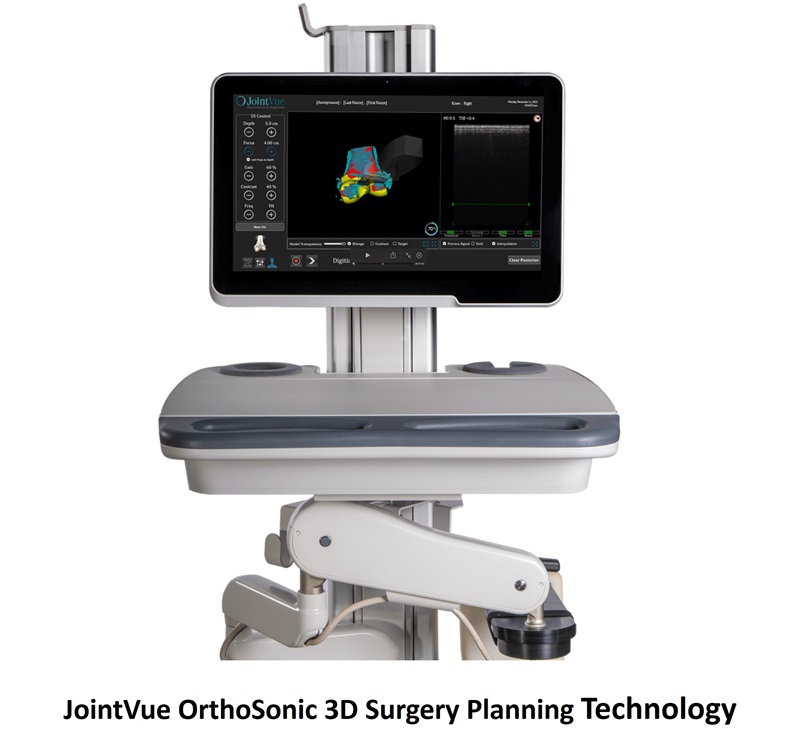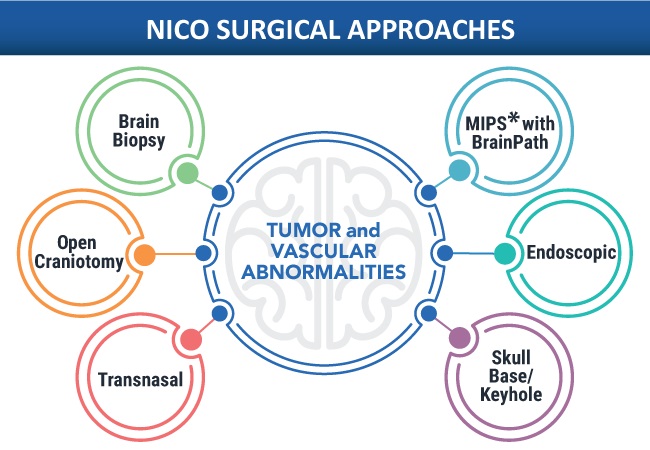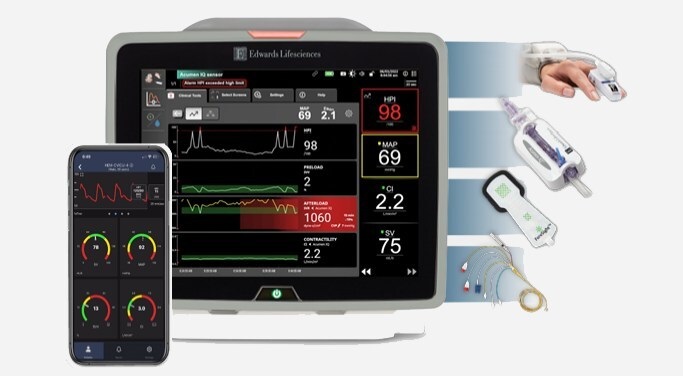ACR Data Science Institute Releases AI Use Cases to Accelerate AI Adoption
|
By HospiMedica International staff writers Posted on 12 Nov 2018 |
The American College of Radiology Data Science Institute (Reston, VA, USA) has released a first-of-its-kind series of standardized artificial intelligence (AI) use cases that will accelerate medical imaging AI adoption. This continually updated, freely available use case series is the product of a previously missing and collaborative framework that enables efficient creation, implementation and ongoing improvement of radiological AI tools.
The ACR-DSI technology oriented use cases in health care-AI (TOUCH-AI) framework leverages multi-specialty, multi-industry expert panels to define clinically relevant use cases for development of medical imaging, interventional radiology and radiation oncology AI algorithms. It establishes a methodology and provides tools and metrics for creating algorithm training, testing and validation of data sets around these use cases. Additionally, it develops standardized pathways for implementing AI algorithms in clinical practice and creates opportunities to monitor their effectiveness through the ACR National Radiology Data Registry, the ACR DSI algorithm monitoring service, Assess-AI and others. It also addresses regulatory, legal and ethical issues regarding medical imaging, interventional radiology and radiation oncology AI.
"The ACR DSI use cases present a pathway to help AI developers solve health care problems in a comprehensive way that turns concepts for AI solutions into safe and effective tools to help radiologists provide better care for our patients," said Bibb Allen Jr., ACR DSI Chief Medical Officer.
"The ACR DSI framework promotes standardization, interoperability, reportability and patient safety in radiological artificial intelligence development that can help usher in a new era of advanced medicine," added Keith J. Dreyer, ACR DSI Chief Science Officer.
Related Links:
American College of Radiology Data Science Institute
The ACR-DSI technology oriented use cases in health care-AI (TOUCH-AI) framework leverages multi-specialty, multi-industry expert panels to define clinically relevant use cases for development of medical imaging, interventional radiology and radiation oncology AI algorithms. It establishes a methodology and provides tools and metrics for creating algorithm training, testing and validation of data sets around these use cases. Additionally, it develops standardized pathways for implementing AI algorithms in clinical practice and creates opportunities to monitor their effectiveness through the ACR National Radiology Data Registry, the ACR DSI algorithm monitoring service, Assess-AI and others. It also addresses regulatory, legal and ethical issues regarding medical imaging, interventional radiology and radiation oncology AI.
"The ACR DSI use cases present a pathway to help AI developers solve health care problems in a comprehensive way that turns concepts for AI solutions into safe and effective tools to help radiologists provide better care for our patients," said Bibb Allen Jr., ACR DSI Chief Medical Officer.
"The ACR DSI framework promotes standardization, interoperability, reportability and patient safety in radiological artificial intelligence development that can help usher in a new era of advanced medicine," added Keith J. Dreyer, ACR DSI Chief Science Officer.
Related Links:
American College of Radiology Data Science Institute
Latest Industry News News
Channels
Critical Care
view channel_1.jpg)
Cutting-Edge Bioelectronic Device Offers Drug-Free Approach to Managing Bacterial Infections
Antibiotic-resistant infections pose an increasing threat to patient safety and healthcare systems worldwide. Recent estimates indicate that drug-resistant infections may rise by 70% by 2050, highlighting... Read more
Sophisticated Machine-Learning Approach Uses Patient EHRs to Predict Pneumonia Outcomes
Pneumonia, an infection that results in difficulty breathing due to fluid accumulation in the lungs, is one of the leading causes of death worldwide. This condition is particularly challenging to treat... Read more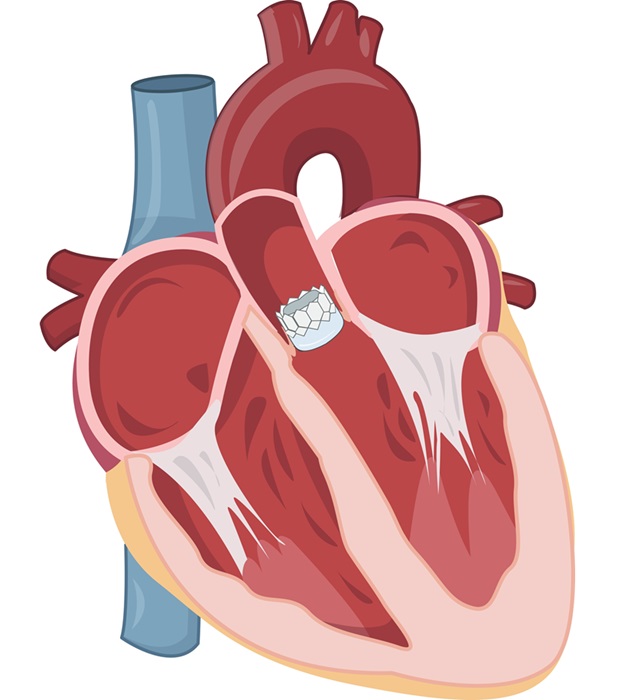
Early TAVR Benefits Patients with Asymptomatic Severe Aortic Stenosis
For patients with asymptomatic severe aortic stenosis (AS) and preserved left-ventricular ejection fraction, current guidelines recommend clinical surveillance every six to twelve months.... Read more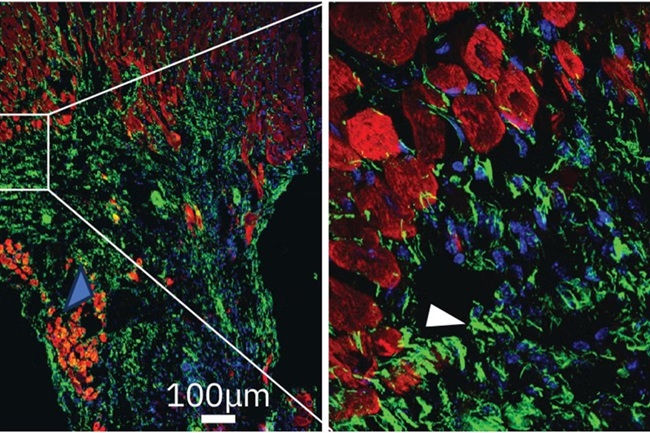
First-Of-Its-Kind Experimental Therapy Enhances Tissue Repair After Heart Attack
Cardiovascular disease remains the leading cause of death worldwide, accounting for one-third of all annual fatalities. Following a heart attack, the heart's natural regenerative ability is limited, resulting... Read moreSurgical Techniques
view channel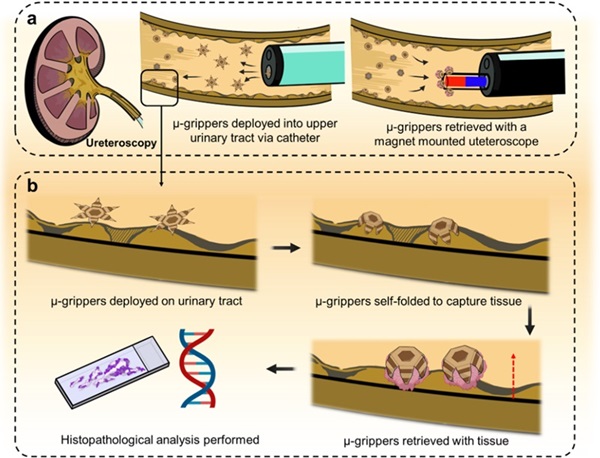
Microgrippers For Miniature Biopsies to Create New Cancer Diagnostic Screening Paradigm
The standard diagnosis of upper urinary tract cancers typically involves the removal of suspicious tissue using forceps, a procedure that is technically challenging and samples only a single region of the organ.... Read moreMiniature Soft Lithium-Ion Battery Could Be Used as Defibrillator During Surgery
The development of tiny smart devices, measuring just a few cubic millimeters, requires equally miniature power sources. For minimally invasive biomedical devices that interact with biological tissues,... Read more.jpg)
TAVI Procedure Supported by Radial Artery Access Reduces Bleeding Complications
The TAVI procedure, or Transcatheter Aortic Valve Implantation, is a minimally invasive technique in which a new aortic valve is inserted through a femoral artery to replace a narrowed old valve.... Read more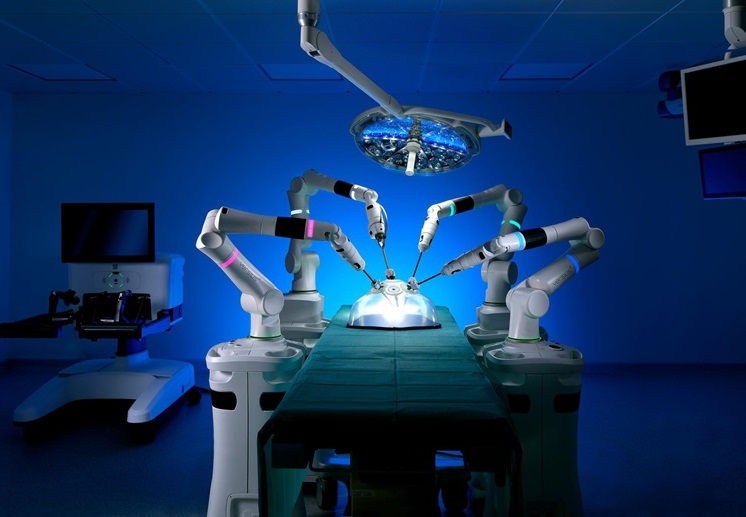
Portable Surgical Robot Seamlessly Integrates into Any OR for Performing Cholecystectomy Procedures
The United States represents a significant market with a strong demand for a flexible surgical robotic system applicable across various care settings. However, there has been a lack of sufficient options... Read morePatient Care
view channel
Portable Biosensor Platform to Reduce Hospital-Acquired Infections
Approximately 4 million patients in the European Union acquire healthcare-associated infections (HAIs) or nosocomial infections each year, with around 37,000 deaths directly resulting from these infections,... Read moreFirst-Of-Its-Kind Portable Germicidal Light Technology Disinfects High-Touch Clinical Surfaces in Seconds
Reducing healthcare-acquired infections (HAIs) remains a pressing issue within global healthcare systems. In the United States alone, 1.7 million patients contract HAIs annually, leading to approximately... Read more
Surgical Capacity Optimization Solution Helps Hospitals Boost OR Utilization
An innovative solution has the capability to transform surgical capacity utilization by targeting the root cause of surgical block time inefficiencies. Fujitsu Limited’s (Tokyo, Japan) Surgical Capacity... Read more
Game-Changing Innovation in Surgical Instrument Sterilization Significantly Improves OR Throughput
A groundbreaking innovation enables hospitals to significantly improve instrument processing time and throughput in operating rooms (ORs) and sterile processing departments. Turbett Surgical, Inc.... Read moreHealth IT
view channel
Machine Learning Model Improves Mortality Risk Prediction for Cardiac Surgery Patients
Machine learning algorithms have been deployed to create predictive models in various medical fields, with some demonstrating improved outcomes compared to their standard-of-care counterparts.... Read more
Strategic Collaboration to Develop and Integrate Generative AI into Healthcare
Top industry experts have underscored the immediate requirement for healthcare systems and hospitals to respond to severe cost and margin pressures. Close to half of U.S. hospitals ended 2022 in the red... Read more
AI-Enabled Operating Rooms Solution Helps Hospitals Maximize Utilization and Unlock Capacity
For healthcare organizations, optimizing operating room (OR) utilization during prime time hours is a complex challenge. Surgeons and clinics face difficulties in finding available slots for booking cases,... Read more
AI Predicts Pancreatic Cancer Three Years before Diagnosis from Patients’ Medical Records
Screening for common cancers like breast, cervix, and prostate cancer relies on relatively simple and highly effective techniques, such as mammograms, Pap smears, and blood tests. These methods have revolutionized... Read morePoint of Care
view channel
Handheld, Sound-Based Diagnostic System Delivers Bedside Blood Test Results in An Hour
Patients who go to a doctor for a blood test often have to contend with a needle and syringe, followed by a long wait—sometimes hours or even days—for lab results. Scientists have been working hard to... Read more
Smartphone-Enabled, Paper-Based Quantitative Diagnostic Platform Transforms POC Testing
Point-of-care diagnostics are crucial for public health, offering rapid, on-site testing that enables prompt diagnosis and treatment. This is especially valuable in remote or underserved regions where... Read moreBusiness
view channel
Hologic Acquires Gynesonics to Strengthen Existing Gynecological Surgical Business
Hologic (Marlborough, MA, USA) has signed a definitive agreement to acquire Gynesonics (Redwood City, CA, USA) for approximately USD 350 million, subject to working capital and other customary closing adjustments.... Read more